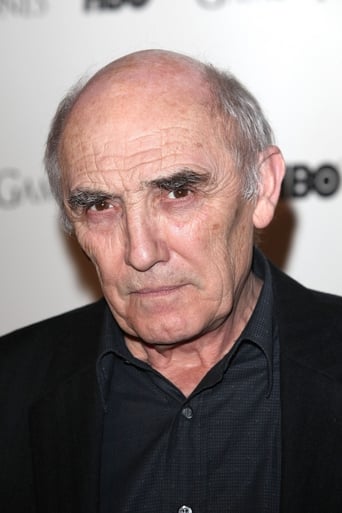Jeanskynebu
the audience applauded
Wordiezett
So much average
Freaktana
A Major Disappointment
Murphy Howard
I enjoyed watching this film and would recommend other to give it a try , (as I am) but this movie, although enjoyable to watch due to the better than average acting fails to add anything new to its storyline that is all too familiar to these types of movies.
babakjalali
The most urgent and necessary film to come out of the UK in quite some time. Having made the wonderful 'Better Things', Duane Hopkins had a lot to live up to but with 'Bypass', he has not only matched his debut feature, he has taken things a step further. With a great cast of actors and technically stunning, there is something very hypnotic about this film. Cinema can mean many things, but so few are displaying courage when taking on the responsibility of making a film. Above all, this is a film full of courage. If you choose to see one film this year of all years (particularly with the political events and elections in this country), make sure it's Bypass. Time will show that very few films manage to address issues the way that this poetic and eloquent film so vividly does.
Mike Forshaw
In a cinematic landscape dominated by superhero franchises, BYPASS provides a platform for the kind of characters the peerless Alan Clarke regularly gave a voice too. Set in a community that has been decimated by industrial decline, the film follows Tim (George MacKay) as he struggles to hold the last fragments of his family together. Much like Jérémie Renier's character in L'Infant (2005), Tim lives on the fringes of society and survives through petty crime. When faced with the reality of losing his family home, Tim is left with no option but to follow the path that led is older brother (Benjamin Dilloway) to jail – and his circumstances are further complicated by his rapidly deteriorating health.Although BYPASS is set amongst a social-realist landscape, Hopkin's has infused Tim's world with a striking aesthetic - were dialogue is sparse and the cinematography and sound design propel the narrative. David Proctor's cinematography is beautiful, and as Tim's life spirals out of control the imagery carefully immerses the audience in his increasingly desperate situation. As the central protagonist George MacKay (FOR THOSE IN PERIL, SUNSHINE ON LEITH, PRIDE) is a revelation, and his scenes with Lester (Matt Cross) in particular, bristle with tension and menace.BYPASS isn't what David Fincher calls popcorn cinema; it demands its audience to engage with its themes, and asks them to reflect long after they have left the cinemaBYPASS is a confident and provocative film which despite another 5 years of potential privatisation, is optimistic for its characters futures. If you truly care about British independent cinema then please ignore the critics, watch BYPASS on VoD* and make up your own mind*http://www.bypassthefilm.co.uk/
Warren Harrison
Having watched Bypass twice (and I suggest other reviewers do likewise) it seems that many have come to this film and not been aware of their own prior expectations and 'ways of seeing'. Of course many will have certain expectations given Hopkin's first feature Better Things, but they may have wrongly expected more of the same, and thus not been open to the ideas and themes that the film presents. It can be read in a typical and might I suggest, lazy way, which is one which will result in missing the richness that the film offers. Concerning the visual style that Hopkins (and his cinematographer, David Procter) employs, many have discussed the lyrical/poetic nature of it, yet what seems to have been missed is the shot-size selection and rhythm created by it. The film favours the Close-up, with sparing use of wide-shots, so that when wide/er shots are used they are used to communicate a narrative point without the need for dialogue; they tell us something (Tim standing in the empty bedroom once occupied by his mother is one such example). In scenes where mid-shots are employed, they are shot on the long-end of the lens so that the space around Tim and others is compressed. Proctor's camera is constantly on Tim's shoulder so that we relate closely to an almost POV. This visual style works in conjunction with what we are told, or rather what is withheld from us in certain scenes; we are never given omniscient knowledge, but restrained so that we know no more than Tim does; his illness and the precise machinations of the criminals remain unclear; because Tim is only a bottom of the food chain foot-soldier. As such, the camera brings us close to experience events that are just as muddled to us as they are Tim. Here we are seeing Hopkins continue to explore cinematic form as any person claiming to be a film-maker should. It's approaches such as this that appear to have gone unconsidered as many critics have decided to look for what they know, not found it, then uncritically dismissed the film unfairly. Yes the film is poetic and lyrical in its depictions, but the style is doing more in terms of story than it has been given credit for. A thematic concern that is worth consideration is the notion of fathers; the absent and the becoming, which at the same time speaks of children, protection, encouragement, safety and security and a hope for something better than what is at hand. Here it is not only Tim, his sister and older brother who feel loss, but they are representative of a generation, not just themselves. This generational comment is most profoundly communicated in Tim's fit; this is not just the unidentified illness taking its toll on one young man, but upon a generation who have no arsenal of family, contacts or qualifications with which to fight the uncertainties of the modern age; this is the convulsion of a generation played out alone, unseen and uncared for (where, if we are honest, we'd sooner it stayed). Here then, Tim should be considered as an archetype. The ending of the film has also been misread; it's only happy for a fleeting moment that surely Tim deserves, and will soon be gone when he returns to the estate to try against the odds to provide as a father. Some people have dismissed Bypass as being too heavy-handed in the rapid chain of dismal events that befall Tim and his fiends and family, that Hopkins has laid them on too thick. Not so. If you have not yet seen Bypass, go and sit in a pub in an estate like the one Hopkins depicts (if you dare, or if you can find one open), and listen to the life-stories on offer, then watch it. You may well find that Hopkins has not gone far enough. If you have watched it, look again, but only after you have given your predispositions and prejudices a Greg style right-hook.
claire-77021
Is morality a luxury? Bypass provides the platform to reflect upon this. It's a film that at the moment may only be liked if the 'in crowd' say it's cool. It is cool. It's one of those films that in twenty years time film tutors will automatically suggest their more insightful students watch but why wait? It not only washes the viewer into its own world beautifully by its striking cinematography and sound score that slow dive may gleefully dive towards but more importantly it enables its viewer to think. It enables its viewer to ask why. It enables and instigates its viewer to empathize, really empathize, not feel moved then ten minutes out of the cinema lose the feeling and never remember why. Maybe that's too easy, maybe that's what society wants now, quick bursts of highs and lows with no consequence. Every action, even no action brings reaction. The question is, why aren't we pulling over and is morality a luxury? Personally I thought this film was one of the most important I've had the luxury of seeing for quite some time.




